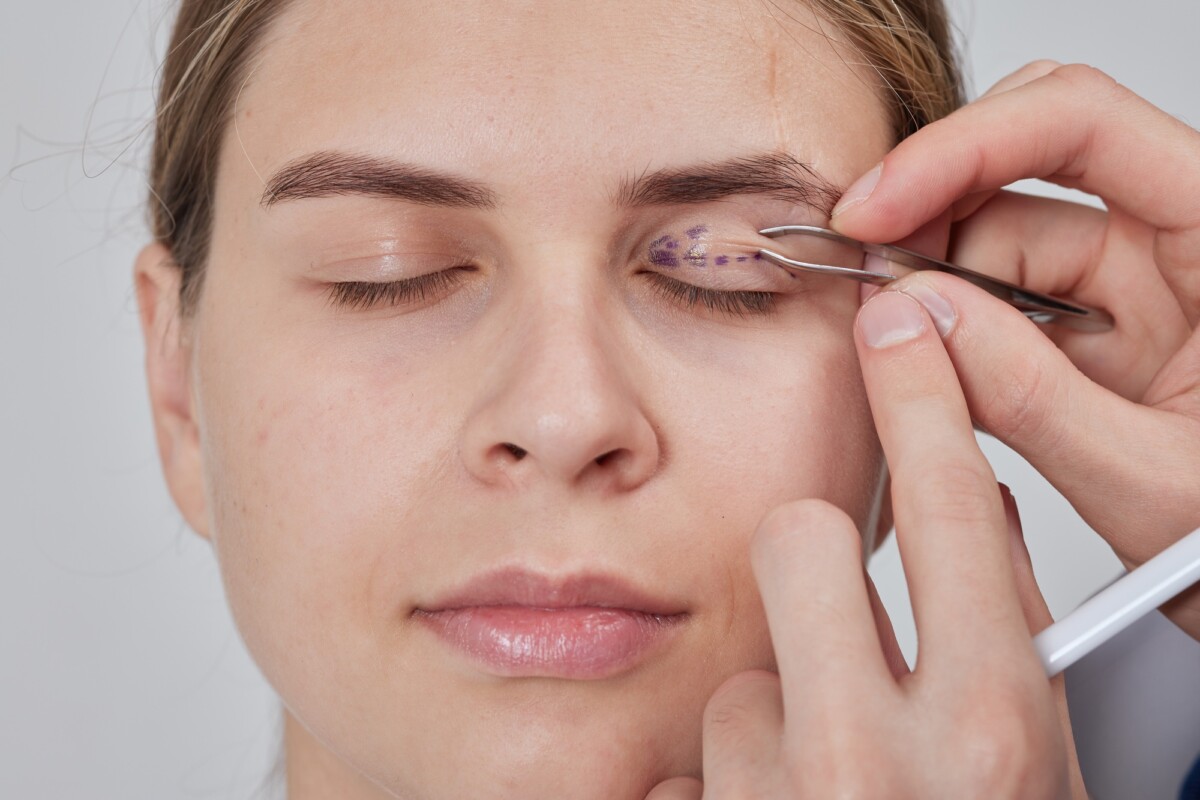Does Medicare Pay for Blepharoplasty Understanding Coverage and Costs
When considering cosmetic procedures, many individuals wonder about the financial implications, especially when it comes to insurance coverage. One common question that arises is, does Medicare pay for blepharoplasty? Understanding this can significantly impact your decision-making process regarding eyelid surgery, which is often sought for both aesthetic and functional reasons.
What is Blepharoplasty?
Blepharoplasty, commonly known as eyelid surgery, is a procedure designed to correct drooping eyelids and remove excess skin, fat, or muscle from the upper and lower eyelids. This surgery can enhance the appearance of the eyes and improve vision obstructed by sagging eyelids. Here are some key points to consider:
- Types of Blepharoplasty: There are two main types: upper eyelid surgery, which addresses sagging skin above the eyes, and lower eyelid surgery, which targets puffiness and dark circles.
- Benefits: Beyond cosmetic improvements, blepharoplasty can also alleviate vision problems caused by drooping eyelids, making it a functional procedure as well.
- Recovery Time: Patients typically experience swelling and bruising for a few days post-surgery, with most returning to normal activities within a week.
Who is a Good Candidate?
Not everyone is a suitable candidate for blepharoplasty. Here are some factors to consider:
- Age: Most candidates are over 35, but younger individuals with hereditary eyelid issues may also qualify.
- Health Conditions: Candidates should be in good health, without serious eye conditions or uncontrolled diabetes.
- Realistic Expectations: It’s crucial to have realistic expectations about the outcomes of the surgery and understand that while it can enhance appearance, it won’t stop the aging process.
Medicare Coverage for Blepharoplasty
Now, let’s address the burning question: does Medicare pay for blepharoplasty? Medicare may cover the procedure if it is deemed medically necessary. Here are some considerations:
- Medical Necessity: If drooping eyelids obstruct vision, Medicare may cover the surgery as part of its benefits. A thorough evaluation by a healthcare provider is essential to determine this.
- Documentation Required: Patients will need to provide medical records and possibly undergo a visual field test to prove that the surgery is necessary for vision correction.
- Out-of-Pocket Costs: If the procedure is deemed cosmetic, patients will be responsible for the full cost, which can range from $3,000 to $5,000 depending on various factors.
Eligibility Criteria for Medicare Coverage
When considering cosmetic procedures, many individuals wonder, does Medicare pay for blepharoplasty? This question is particularly significant for those who may be experiencing functional issues due to drooping eyelids. Understanding the eligibility criteria for Medicare coverage can help patients make informed decisions about their health and finances.
To qualify for Medicare coverage for blepharoplasty, certain criteria must be met. It’s essential to understand these requirements to determine if your procedure may be covered. Here are the key factors to consider:
Medical Necessity
- Medicare typically covers blepharoplasty when it is deemed medically necessary. This means that the procedure must address functional impairments, such as:
- Vision obstruction caused by sagging eyelids
- Eyelid droop that interferes with daily activities
- A thorough evaluation by a qualified healthcare provider is crucial to establish medical necessity. Documentation of symptoms and their impact on your life will be required.
Documentation Requirements
- To support your claim for coverage, you will need to provide:
- A detailed medical history
- Evidence of previous treatments or interventions
- Photographic documentation showing the extent of the eyelid droop
- This documentation will be reviewed by Medicare to determine if the procedure meets their criteria for coverage.
Consultation with a Specialist
- Before proceeding, it’s advisable to consult with a board-certified ophthalmologist or plastic surgeon experienced in performing blepharoplasty. They can help assess your condition and guide you through the process of obtaining Medicare coverage.
Medical Necessity vs. Cosmetic Procedure
When considering blepharoplasty, or eyelid surgery, many patients wonder: does Medicare pay for blepharoplasty? This question is crucial, as it can significantly impact the decision to undergo the procedure. Blepharoplasty can enhance both appearance and function, particularly for those experiencing vision problems due to sagging eyelids. Understanding the distinction between medical necessity and cosmetic procedures is essential for determining coverage options.
In the realm of healthcare, the classification of a procedure as either medically necessary or cosmetic can determine whether insurance, including Medicare, will cover the costs. Let’s break this down further:
What is Medical Necessity?
- Medical necessity refers to treatments or procedures that are essential for diagnosing or treating a medical condition.
- For blepharoplasty to be deemed medically necessary, it must be shown that the procedure will improve vision or alleviate other health issues caused by drooping eyelids.
- Documentation from a healthcare provider is often required to support the claim for coverage.
When eyelids sag to the point where they obstruct vision, blepharoplasty may be justified as a medical necessity. Patients may need to undergo a visual field test to demonstrate the extent of the obstruction, which can help in the approval process for Medicare coverage.
What is a Cosmetic Procedure?
- Cosmetic procedures are performed primarily for aesthetic reasons and are not typically covered by insurance.
- If blepharoplasty is sought solely for cosmetic enhancement, such as reducing wrinkles or improving appearance, Medicare is unlikely to cover the costs.
- Patients should be aware that even if they have a medical condition, if the primary motivation for surgery is cosmetic, they may face out-of-pocket expenses.
It’s important to have a candid discussion with your healthcare provider about your motivations for seeking blepharoplasty. This conversation can help clarify whether your case leans more towards medical necessity or cosmetic enhancement, which is vital for understanding potential Medicare coverage.
Statistics and Considerations
- According to the American Society of Plastic Surgeons, over 200,000 blepharoplasty procedures were performed in the U.S. in 2020, highlighting its popularity.
- A significant percentage of these surgeries were performed for medical reasons, emphasizing the importance of understanding the criteria for coverage.
- Patients should also consider that even if Medicare covers the procedure, there may be associated costs, such as deductibles or co-pays, that could affect overall expenses.
In conclusion, whether Medicare pays for blepharoplasty hinges on the classification of the procedure. By understanding the nuances of medical necessity versus cosmetic procedures, patients can better navigate their options and make informed decisions about their healthcare.
How to Apply for Medicare Coverage
When considering cosmetic procedures like blepharoplasty, many people wonder, does Medicare pay for blepharoplasty? This question is significant because it can impact the decision-making process for those who may need this surgery for both aesthetic and medical reasons. Blepharoplasty, or eyelid surgery, can help improve vision by removing excess skin that may obstruct sight, but understanding Medicare’s coverage is crucial for financial planning.
Understanding Eligibility
- Medicare typically covers blepharoplasty if it is deemed medically necessary. This means that if your eyelids are affecting your vision, you may qualify for coverage.
- To determine eligibility, a thorough evaluation by a qualified healthcare provider is essential. They will assess your condition and document the need for surgery.
- It’s important to note that purely cosmetic procedures are not covered by Medicare, so having a medical justification is key.
Gathering Required Documentation
- Before applying for coverage, gather all necessary medical records, including:
- A detailed report from your ophthalmologist or primary care physician.
- Any previous treatments or evaluations related to your eyelid condition.
- Photographic evidence showing the impact of your eyelids on your vision.
- This documentation will support your claim and help demonstrate the medical necessity of the procedure.
Submitting Your Claim
- Once you have your documentation ready, you can submit a claim to Medicare. Here’s how:
- Complete the CMS-1500 form, which is the standard claim form for Medicare.
- Attach all supporting documents that justify the need for blepharoplasty.
- Send the claim to your Medicare Administrative Contractor (MAC).
- After submission, keep track of your claim status and be prepared to provide additional information if requested.
- It’s advisable to follow up with your healthcare provider to ensure everything is processed smoothly.
Understanding how to apply for Medicare coverage for blepharoplasty can make a significant difference in managing your healthcare costs. By ensuring you meet the eligibility criteria and providing the necessary documentation, you can increase your chances of receiving coverage for this important procedure.
Potential Costs and Out-of-Pocket Expenses
When considering blepharoplasty, or eyelid surgery, many individuals wonder about the financial implications, particularly whether Medicare will cover the costs. Understanding whether Medicare pays for blepharoplasty is crucial for those who may need this procedure for medical reasons, such as vision impairment caused by drooping eyelids. This section will delve into the potential costs and out-of-pocket expenses associated with blepharoplasty, helping you navigate the financial landscape of this surgery.
Blepharoplasty can vary significantly in cost depending on several factors, including the surgeon’s experience, the complexity of the procedure, and the geographic location of the surgery.
Factors Influencing Cost
- Surgeon’s Fees: Experienced surgeons may charge more, but their expertise can lead to better outcomes.
- Facility Fees: The type of facility where the surgery is performed can impact costs. Outpatient surgical centers may be less expensive than hospitals.
- Anesthesia Fees: Depending on the type of anesthesia used, costs can vary. Local anesthesia is generally less expensive than general anesthesia.
The average cost of blepharoplasty in the United States ranges from $3,000 to $5,000. However, if the procedure is deemed medically necessary, Medicare may cover some or all of these costs, provided specific criteria are met.
Out-of-Pocket Expenses
Even if Medicare pays for blepharoplasty, there may still be out-of-pocket expenses to consider.
Common Out-of-Pocket Costs
- Deductibles: Medicare has deductibles that must be met before coverage kicks in.
- Coinsurance: After the deductible, you may still be responsible for a percentage of the costs.
- Non-Covered Services: If you opt for additional cosmetic enhancements that are not deemed medically necessary, those costs will not be covered by Medicare.
It’s essential to consult with your healthcare provider and Medicare to understand what is covered and what you might need to pay out of pocket. This proactive approach can help you avoid unexpected expenses and plan your finances accordingly.
In summary, while Medicare may pay for blepharoplasty under certain conditions, it’s vital to be aware of the potential costs and out-of-pocket expenses that could arise during the process.
Alternatives to Blepharoplasty Covered by Medicare
When considering cosmetic procedures, many people wonder, does Medicare pay for blepharoplasty? This question is significant because it can determine whether individuals can afford this surgery, which is often sought for both aesthetic and functional reasons. Blepharoplasty, or eyelid surgery, can help improve vision by removing excess skin and fat from the eyelids, but its coverage under Medicare can be complex.
While blepharoplasty is a popular choice for addressing eyelid issues, there are alternatives that may be covered by Medicare, especially if they address medical concerns rather than purely cosmetic ones. Understanding these alternatives can help patients make informed decisions about their eye health.
Non-Surgical Options
- Botox Injections: These can temporarily reduce the appearance of wrinkles around the eyes. Medicare may cover Botox if it is deemed medically necessary for conditions like blepharospasm.
- Dermal Fillers: Used to restore volume and smooth out wrinkles, these may also be covered if they are used to treat a medical condition.
Non-surgical options like Botox and dermal fillers can provide a less invasive approach to rejuvenating the eye area. While these treatments are not permanent solutions, they can offer significant improvements in appearance and may be covered by Medicare under specific circumstances.
Vision Therapy
- Eye Exercises: For patients with vision problems related to eyelid drooping, Medicare may cover vision therapy, which includes exercises to strengthen eye muscles.
- Prescription Glasses: If eyelid issues are affecting vision, Medicare typically covers prescription eyewear that can help improve sight.
Vision therapy and prescription glasses can be effective alternatives for those whose eyelid concerns impact their vision. These options focus on improving functionality rather than aesthetics, aligning with Medicare’s coverage policies.
Medical Treatments
- Medications: In some cases, medications may be prescribed to address underlying conditions affecting the eyelids, such as inflammation or infection.
- Other Surgical Procedures: If eyelid drooping is severe enough to impair vision, other surgical interventions may be covered by Medicare, depending on the diagnosis.
For individuals experiencing significant eyelid issues, consulting with a healthcare provider can reveal whether medical treatments or alternative procedures might be covered by Medicare. This can help patients avoid the costs associated with blepharoplasty while still addressing their concerns effectively.
FAQs: Medicare Coverage for Blepharoplasty
1. What are the Medicare requirements for blepharoplasty?
Medicare covers blepharoplasty (eyelid surgery) only if it is deemed medically necessary. This means you must meet specific criteria, such as:
- Impaired Vision: Your upper eyelid must significantly obstruct your vision, affecting daily activities like reading or driving.
- Field of Vision Test: A visual field test from an ophthalmologist must show a reduction in your peripheral vision due to droopy eyelids.
- Medical Documentation: Your doctor must provide proof, including photographs and clinical notes, confirming the medical necessity of the procedure.
2. What makes blepharoplasty medically necessary?
Medicare considers blepharoplasty medically necessary if:
- The drooping eyelid (ptosis) significantly obstructs your vision.
- You experience chronic eye irritation or strain due to excess eyelid skin.
- You have difficulty keeping your eyes open due to the heaviness of the eyelid.
- A doctor confirms that non-surgical treatments are ineffective, and surgery is the only viable option.
If your surgery is purely for cosmetic reasons, Medicare will not cover the procedure.
3. Is 65 too old for blepharoplasty?
No, age alone is not a restriction for blepharoplasty. Many people in their 60s, 70s, and even 80s successfully undergo the procedure. However, your overall health and medical history will determine if you’re a good candidate. Your doctor will assess factors such as:
- Your ability to heal from surgery
- Any underlying health conditions, like diabetes or high blood pressure
- The risks associated with anesthesia
If you are healthy and meet Medicare’s medical necessity criteria, you can have blepharoplasty at any age.
4. What type of eye surgery does Medicare pay for?
Medicare covers eye surgeries that are considered medically necessary, including:
- Cataract Surgery – Medicare covers traditional or laser-assisted cataract surgery, including intraocular lens implants.
- Glaucoma Surgery – If you have glaucoma, Medicare covers procedures like laser trabeculoplasty or drainage implants.
- Retinal Surgery – Conditions like retinal detachment or macular degeneration may require surgery, which Medicare can cover.
- Eyelid Surgery (Blepharoplasty and Ptosis Repair) – If excess eyelid skin is blocking your vision, Medicare may cover it.
Don’t wait! Get your free Medicare quote today at NewMedicare.com or call us now at 📞 (833) 203-6742!





